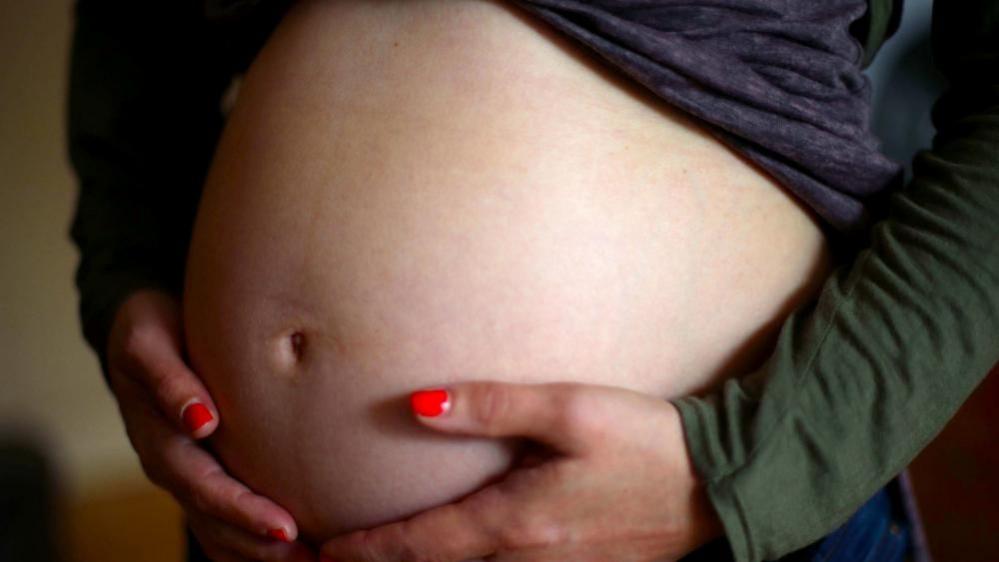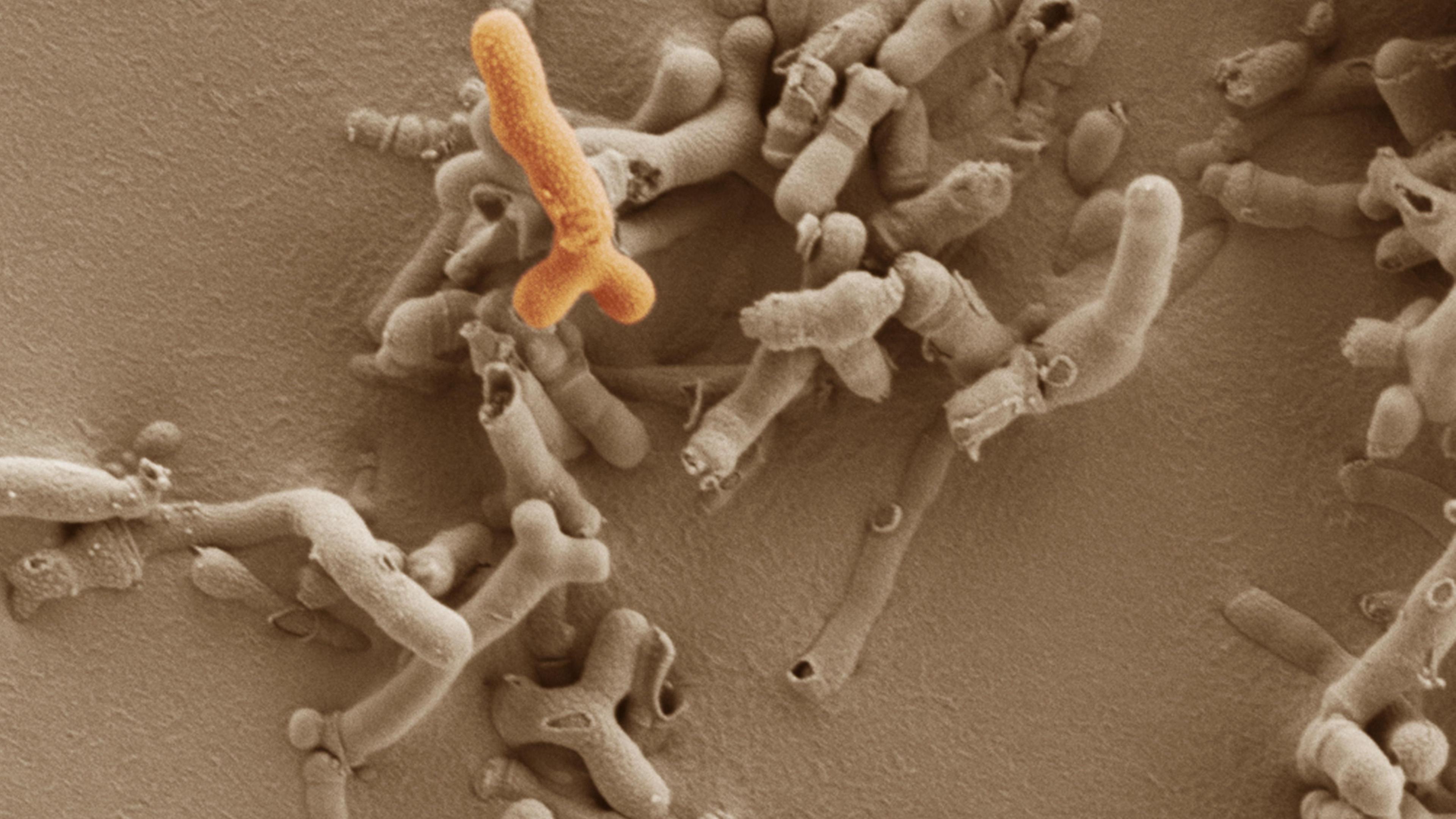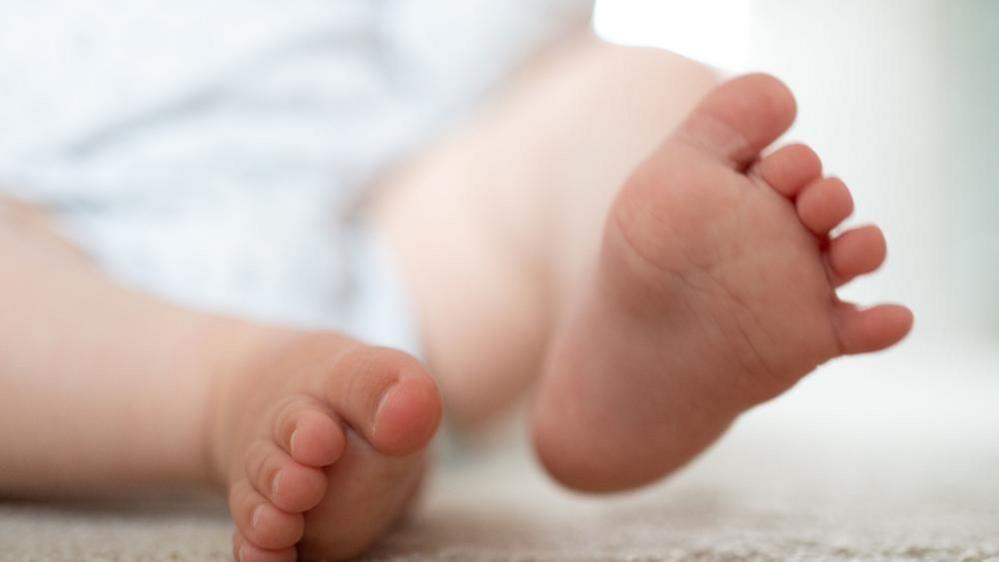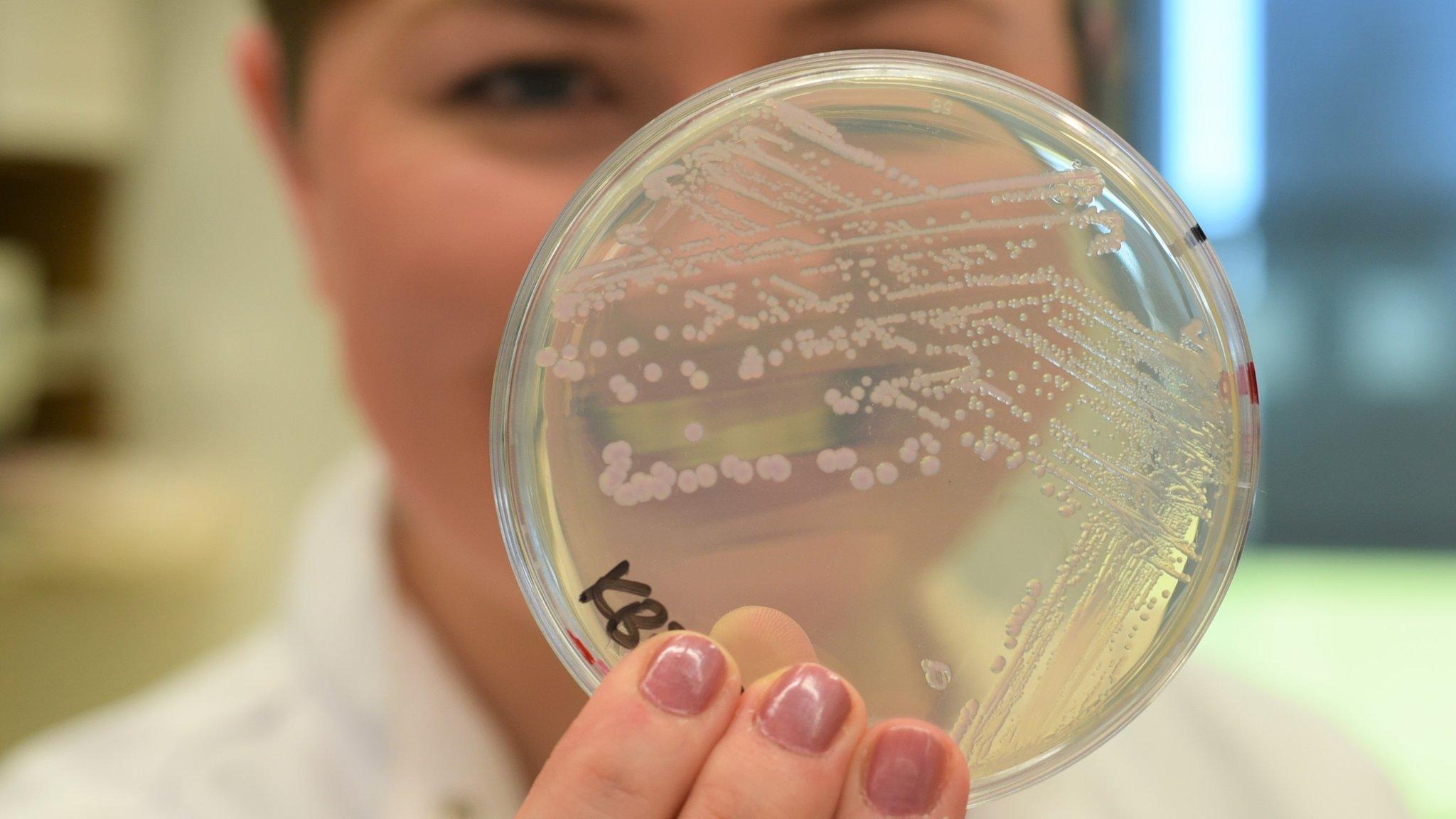'Good bacteria' could boost babies, says gut study

Babies could benefit if pregnant women are given "good bacteria", a gut study suggests
- Published
Babies could benefit if pregnant women are given "good bacteria", a report by academics suggests.
Cambridge University says a study in mice found the presence of the bacteria Bifidobacterium breve in a pregnant mother’s gut supported healthy brain development in the foetus.
Researchers compared the development of the fetal brain in mice whose mothers had no bacteria in their gut, to those whose mothers were given Bifidobacterium breve orally during pregnancy.
Report authors said the study suggested that providing "good bacteria" could improve baby development - and that specialists should change tack.

A study in mice found that "Bifidobacterium breve" in a pregnant woman’s gut supported healthy brain development in the fetus.
“Our study suggests that by providing ‘good bacteria’ to the mother we could improve the growth and development of her baby while she’s pregnant,” said Dr Jorge Lopez-Tello, a researcher Cambridge’s Centre for Trophoblast Research.
“This means future treatments for fetal growth restriction could potentially focus on altering the gut microbiome through probiotics, rather than offering pharmaceutical treatments - with the risk of side effects - to pregnant women.”
Prof Amanda Sferruzzi-Perri, who is also based at the centre, added: “The design of therapies for fetal growth restriction are focused on improving blood flow pathways in the mother, but our results suggest we’ve been thinking about this the wrong way - perhaps we should be more focused on improving maternal gut health."
Prof Lindsay Hall, who is based at Birmingham University and was also involved in the research, went on: “Although further research is needed to understand how these effects translate to humans, this exciting discovery may pave the way for future clinical studies that explore the critical role of the maternal microbiome in supporting healthy brain development before birth."

Bifidobacterium breve in a pregnant mother’s gut supported healthy brain development in the fetus, the study showed
A Cambridge University spokeswoman said "nutrient transport" to the brain increased in fetuses of mothers given Bifidobacterium breve - and "beneficial changes" were seen in other "cell processes relating to growth".
She said Bifidobacterium breve was a "good bacteria" that occured naturally in the gut, and was available as a supplement in probiotic drinks and tablets.
"The babies of up to 10% of first-time mothers have low birth weight or fetal growth restriction," she added.
"If a baby hasn't grown properly in the womb, there is an increased risk of conditions like cerebral palsy in infants and anxiety, depression, autism, and schizophrenia in later life.
"These results suggest that improving fetal development - specifically fetal brain metabolism - by taking Bifidobacterium breve supplements while pregnant may support the development of a healthy baby."
The study had been published in the journal Molecular Metabolism and was funded by the Wellcome Trust, the Biotechnology and Biological Sciences Research Council (BBSRC) and the Lister Institute of Preventive Medicine, the spokeswoman said.
Get in touch
Do you have a story suggestion for Cambridgeshire?
Follow Cambridgeshire news on BBC Sounds, Facebook, external, Instagram, external and X, external.
More stories like this
- Published1 August 2024

- Published26 September 2019
